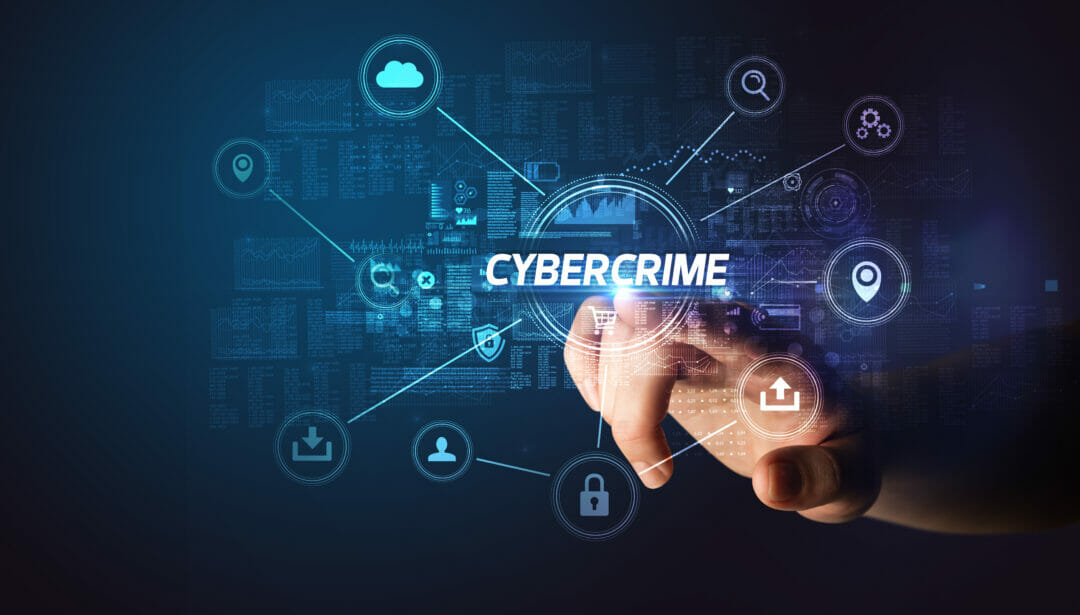Cyber Crime
With technology playing a bigger and bigger part in our daily lives, cybercrime is becoming a bigger threat. Any criminal activity that makes use of a computer or the Internet is referred to as cybercrime. The types of cybercrimes continue to change as new technologies are developed, and new methods are being used daily. Understanding cybercrime and how to prevent it is crucial, for this reason.

Cybercrime: What Is It?
- Cybercrimes in 2023 as Examples.
- Attacks Using Ransomware:
- Cyber Espionage:
- Attacks on the Internet of Things (IoT):
- Phishing:
- Use Secure Passwords:
- Keep your software up-to-date:
- Be skeptical of emails and messages:
- Back up your data:
As a result, it is critical to comprehend what cybercrime is, how it may impact you, and most importantly, how to defend yourself from it. Cybercrime is a growing threat. Everyone can take the necessary precautions to safeguard themselves against cyberattacks by paying attention to these straightforward tips. To ensure that we are all safe in the digital world, let's make sure we are alert and responsive to the risks posed by cybercrime.
- Use anti-virus software:
- Educate yourself:
Cyber Security is an essential aspect of modern life, and everyone needs to take it seriously. By being aware of potential threats and taking necessary precautions, we can keep ourselves and our data safe. Remember, Cyber Security is not a one-time event or a singular action- it is a continuous and ongoing process that requires consistent efforts and attention. Let's make Cyber Security a priority and protect ourselves and our digital assets from cyber-attacks.
- Use a VPN:
Set up a reliable antivirus program on your devices and enable firewall protection to safeguard yourself against viruses and malware. Read trustworthy sources of cybersecurity news, go to cybersecurity events, and take cybersecurity training courses to keep yourself up to date on the most recent online threats and safe browsing techniques.
- Be cautious on public Wi-Fi:
In conclusion, cybercrime poses a serious threat to people, businesses, and society at large. The threat of cybercrime will only grow as the world's connectivity continues to grow. However, we can stay ahead of cybercriminals and defend ourselves against cybercrime by taking the necessary precautions, such as updating software, using strong passwords, avoiding suspicious emails, and backing up data. Your online safety depends on your knowledge, vigilance, and use of common sense. We can all stay secure online if we prioritize cybersecurity.
- Enable two-factor authentication:
- Secure your home network:
- Use Encrypted Messaging Apps:
Limit the personal information you share online, especially on social media. Cybercriminals may attempt to phish you or steal your identity using personal information.
Check your financial accounts frequently for any suspicious activity or unauthorized transactions. Inform your financial institution immediately of any suspicious activity.
Make Regular Backups: To protect your important data in the event of a cyberattack or system failure, you should make regular, encrypted backups of them. Store your backups safely in several places, both online and offline.Make Regular Backups: To protect your important data in the event of a cyberattack or system failure, you should make regular, encrypted backups of them. Store your backups safely in several places, both online and offline.
Implement multi-factor authentication (MFA): MFA adds an additional layer of security by requiring multiple forms of authentication, such as a password and a fingerprint, to access an account. MFA options are now available on a large number of online services and programs.
You can significantly lower your risk of becoming a victim of cybercrime by putting these extra precautions in place. In light of the ongoing evolution of cybercrime, it is more crucial than ever to take proactive measures to safeguard your digital assets. You can protect your personal and financial information from cybercriminals by keeping up with the most recent cyberthreats, learning about safe online behavior, and taking the necessary precautions like securing your home network and using encrypted messaging apps.
In conclusion, by exercising caution and following the necessary safety measures, the threat of cybercrime can be reduced. It is important to recognize the serious threat posed by cybercrime. Because we use technology more frequently in our daily lives, it is more crucial than ever to take the necessary precautions to safeguard ourselves from cybercriminals. We can significantly lower the likelihood of falling victim to cybercrime by being informed, protecting our online identities, keeping an eye on our financial accounts, creating backups, and putting multi-factor authentication into place. In order to keep everyone safe and secure in the current digital era, let's prioritize cybersecurity.

